- HOME
- Research Department
- East Sea Fisheries Research Institute
East Sea Fisheries Research Institute
Korean coasts of the East Sea are simple and deep and are under locational influence of two distinct water currents that diversifies and magnifies fisheries resources in their water bodies. Research foci of ESFRI are on fisheries resources management, aquaculture, and environmental monitoring to promote fisheries production in sustainable and environmentally sound ways.
Introduction
Introduction
- We will strive for revitalization of East Sea fishing industry.
- The East Sea is deep and clean with a simple coastline. It is where warm and cold currents cross and full of fisheries resources with higher development opportunities than any other sea of Korea.
- The East Sea, however, has been in a difficult situation due to numerous global risk factors: shrinkage of inshore and offshore fishing grounds, a decrease in fisheries resources, marine ecosystem and environmental changes by climate change and a sharp increase of imported marine products.
- In order to cope with these challenges as well as to enhance the fisheries competitiveness of the sea, the ESFRI puts its research focuses on managing and restoring fisheries resources, developing environmentally-friendly and energy saving fishing technology, drawing up strategies to response to global warming, revitalizing East Sea specialities like Pollack, Todarodes pacificus, evaluating and preserving cetacean resources, utilizing numerous marine resources from deep water and Dok-do, operating field customized Fisheries emergency response team and disease control programs.
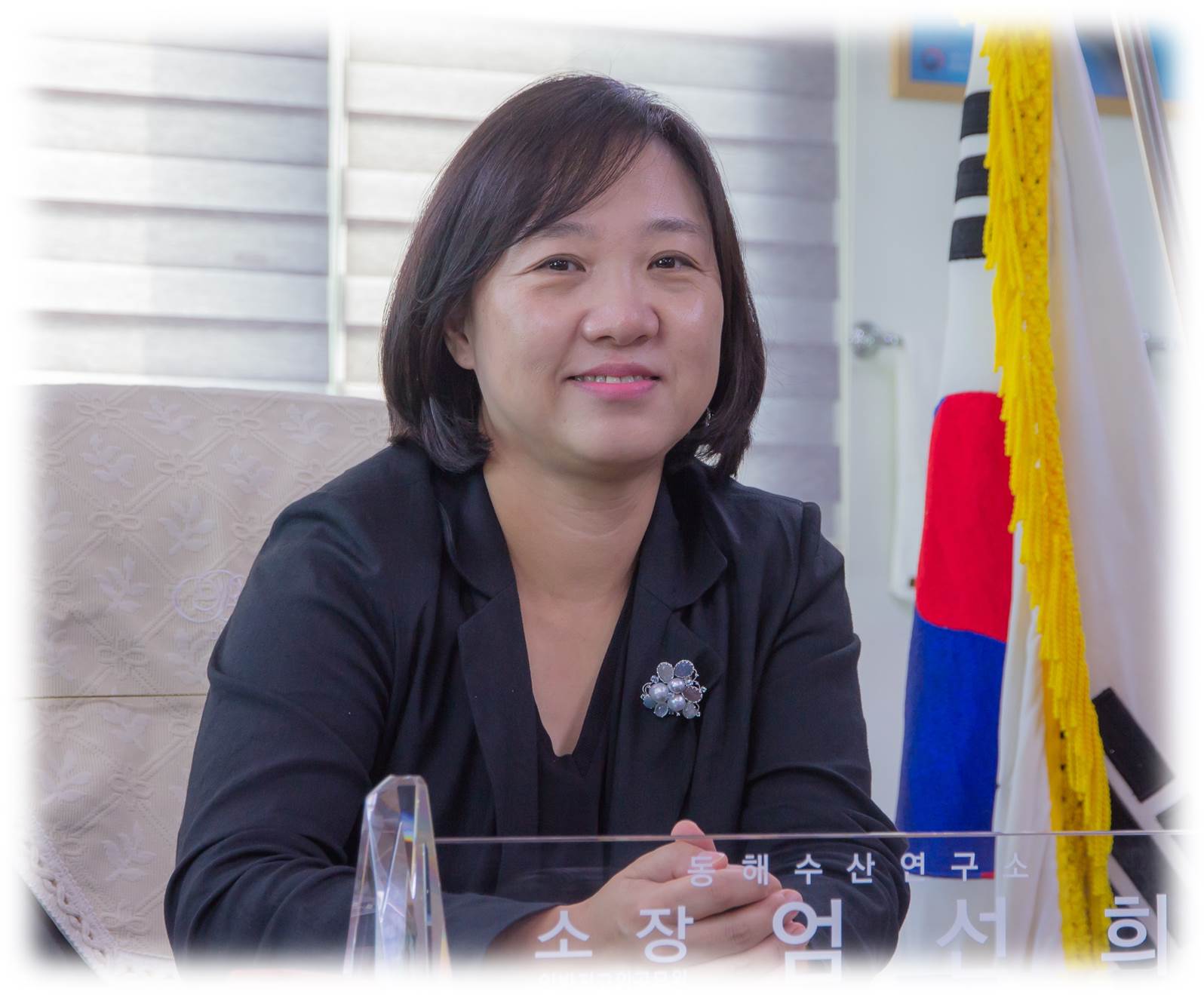
Vision
- Promoting East Sea fisheries for the happiness of people
Strategy
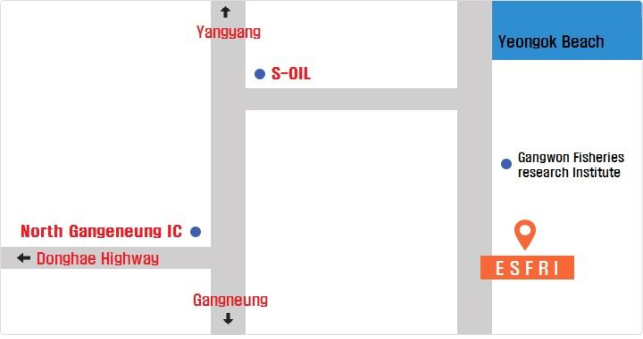
- Development of Fisheries Rebuilding·Restoration and management technology
- Ecological study and proposal of recommendation on East Sea marine resources recovery
- Research for Restoring Giant octopus resources and its stable production
- Establishing a highly efficient laborsaving system for major fisheries and Developing bycatch reduction devices to enhance fisheries resources
- Research for Preservation and management of East Sea Marine environment
- Establishing marine environment monitoring system to respond to climate change
- Providing real-time public notification service of the East Sea marine environment
- Industrializing aquaculture for East Sea endemic species
- Recovering pollack industry by completely controlled aquaculture and its industrialization of pollack
- Developing artificial seeding production of Squid
- Promoting aquaculture technology of strategic species for export like Salmon, Cod.
- Evaluating & Managing cetacean Resources and Developing technology to reduce fishery damages by cetacea
- Fishery resources research on Dokdo & Industrialization of unutilized deep-sea bio-resources
Brief History
- 1944. 5. Fisheries Research Center Jumunjin branch
- 1993. 2. National Fisheries Development Institute East Sea Branch
- 1997. 4. Center Relocation (Pohang → Gangneung)
- 2002. 3. National Fisheries Science Research Institute East Sea Branch
Location and Contact

- Location : 1194, Haean-ro, Yeongok-myeon, Gangneung-si, Gangwon-do, Republic of Korea
Contact US : (82) 33-660-8501
Research fields
East sea Pacific giant octopus restoration research
|
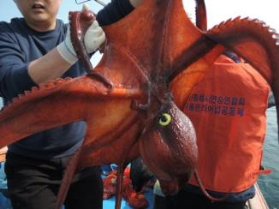 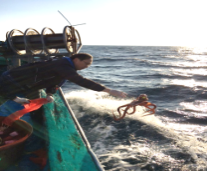 Pacific giant octopus tagging survey |
East sea coast fishing vessel performance improvement research
|
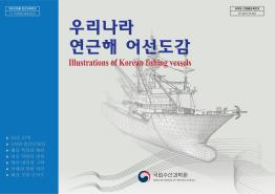 Illustrations of Korean fishing vessels(2018) 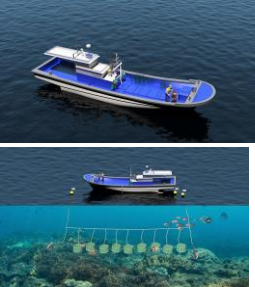 Net fish trap ship and its work mimetic diagram |
East sea marine environment monitoring for responding Climate Change
|

 Surface sea temperature on Korean peninsula coast sea 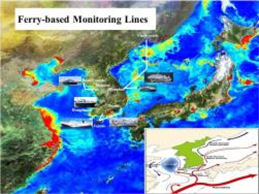 Ocean monitoring system using Korean Peninsula littoral sea sailing ferries. |
Monitoring of marine environment and red tide in the East Sea
|
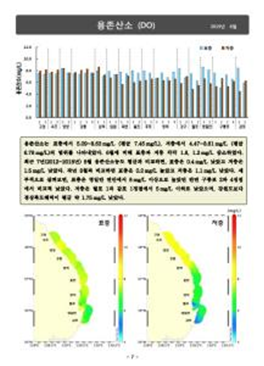 Annual average of WQI and class of each indices on marine environmental monitoring sites in 2018. 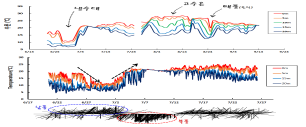 Daily average of water temperature with depth in Guryongpo site on June~August, 2018(up) and water temperature and wind(speed, direction) during cold pool on June(down). |
Commercial aquaculture R&D of Pollack
|
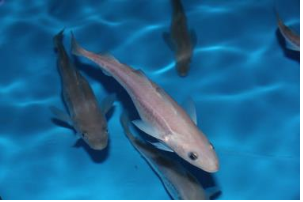 Artificially aquacultured Pollack |
Squid(Todarodes pacificus&cuttlefish) recovery Project
|
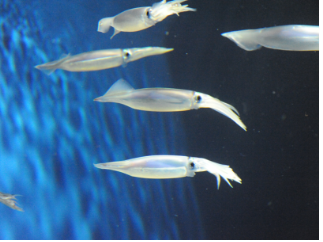 Todarodes pacificus 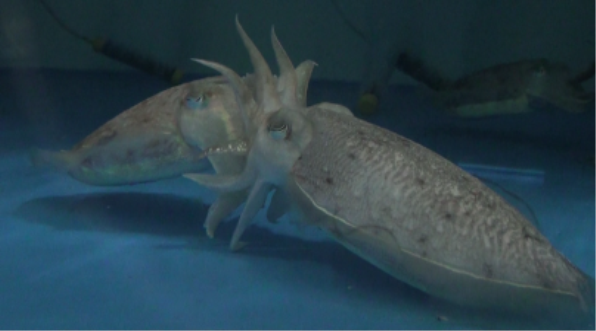 Cuttlefish |
Cod aquaculture technology development
|
 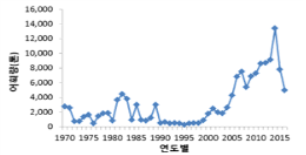 Cod(up) and Yearly production(down) |
East sea Fisheries emergency response team and Aquatic animal disease control program operation
|
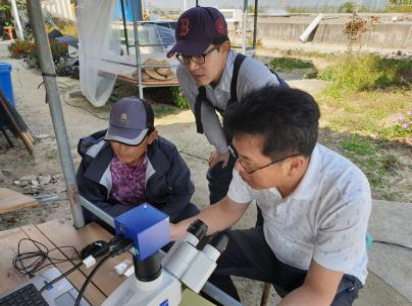 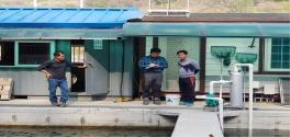 Onsite support for hight water tempera mass stranding(up), Aquatic diseases forecasting and diagnosis(down) |
Fishery resources research on Dokdo & Industrialization of unutilized deep-sea bioresources
|
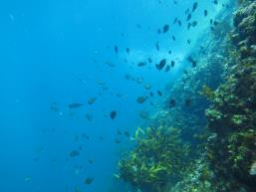 Dokdo aquatic ecosystem 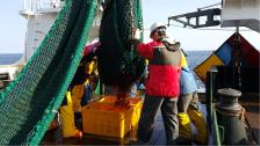 Eastsea deep sea marine resources survey |
Public research result sharing and local community contribution
|
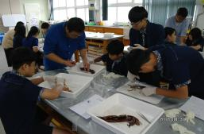 Middle school science school with squid dissection experiment  Pyeongchan Winter Olympic Fishery science exhibition(2018) |

















